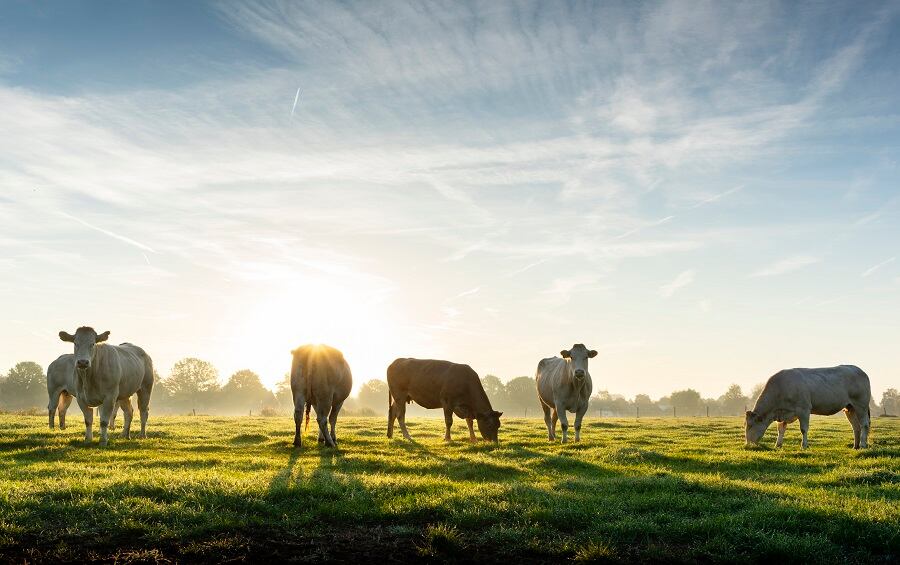Consumer research shows that taste and texture are the most important factors in the decision to buy – or not – plant-based meat, but more often than not the products currently on the market fall short of expectations.
According to research by Ingredion, 53% of consumers said taste and texture are the most important characteristic when selecting a plant-based meat – far higher than the 39% you listed as a top priority whether products have a clean or all natural label and the 37% who said they consider nutrition. Likewise, research by Kerry found 80% of consumers surveyed said they were more likely to buy plant-based burgers that are marketed as “rich and savory.”
The problem is products’ inability to deliver on those marketing claims and expectations, which is reflected in research by Mintel that found 48% of consumers said taste and flavor were major concerns when considering plant-based versus animal protein.
Recognizing that “there is a bit of a taste gap between animal tastes and alternative proteins,” Melt&Marble co-founder and CEO Anastasia Krivoruchko told FoodNavigator-USA that better fat could hold the key.
“Fat is a big contributor to this taste gap. The fats that are being used right now, such as coconut, for example, don’t have the same sensory properties as meats. You don’t get the same mouthfeel, you don’t get the same juiciness or same flavor,” she explained. “And this is basically what we are trying to fix.”
As a frontrunner in the animal-free space, Melt&Marble is using precision fermentation to produce fats that offer similar fatty-acid compositions and saturation levels as those in fats from animal protein and dairy.
She explained the company is using synthetic biology and metabolic engineering to build proprietary yeast strains that can convert natural sugars into specialized fats with help from enzymes selected by the company for their ability to dictate the structure and properties of the final fat, including chain length and saturation.
While the company plans to create a broad range of fats that mimic the profiles of specific animals, Krivoruchko said Melt&Marble is starting with beef and pork fat.
“We got started there because we realized that, in general, there are already a lot of products on the market that are alternative burgers, alternative sausages, but none of them are really good enough. And we’ve had a lot of companies come to us and ask us if we can produce a better fat that can deliver the same mouthfeel and slower melting profile of beef fat,” she said, adding, “this is obviously a huge pain point.”
Because the company’s fats are “just fat,” unlike cultivated or encapsulated fats that have specific structure, Krivoruchko says they easily can replace the plant-based fats currently used, such as coconut, cocoa butter and shea butter.
“Our fat can be more easily dropped into existing production processes, but then still deliver on a better mouthfeel or better juiciness,” she said.
‘With a lot of the plant-based fats … there are a lot of concerns about deforestation’
While not as important as taste and texture, many consumers also are exploring plant-based options because they want a more sustainable alternative to animal products.
Krivoruchko says Melt&Marble not only delivers this, but that its fats are often more sustainable than other plant-based options.
“With a lot of the plant-based fats, like coconut oil, there are a lot of concerns about deforestation, because they are sourced from tropical regions and are associated with biodiversity loss,” she said.
Melt&Marble’s fats, however, are produced using sustainable feedstocks with minimal land use, she added.
Price parity ‘will take time’ but precision fermentation is less expensive than other tech
These benefits come at a higher price point – for now, Krivoruchko acknowledged. But, she said, price parity is within reach.
“When you talk about price parity, especially when it comes to these really new technologies, it is a difficult discussion because you are trying to make the comparison to technologies that are established at scale and have been established at scale for a really long time. So, of course, in order for us and other types of technologies to be fully competitive, we also have to be at scale,” she said.
While scaling Melt&Marble’s technology to the same level as older technologies “will take time,” Krivoruchko explained precision fermentation is much less expensive than other new technologies, such as cell cultivation.
“Precision fermentation, in general, is much cheaper than cultivating animal fat cells, because the microbes grow much faster, they grow to higher cell densities and don’t have as strict nutrient requirements. They’re less susceptible to contamination. And, of course, they already are operating at much bigger scales. So, from this perspective, precision fermentation has a lot of advantages,” she said.
Up next: animal-free dairy fat
As Melt&Marble continues to scale and expand its portfolio, it plans to launch animal-free dairy fats in the US next year.
“With our technology platform, we can produce any kind of fat, and we see there are interesting opportunities for dairy fats – especially in the next generation of cheese. So, for companies that want to create harder cheeses or better reproduce the flavor profiles of dairy that are not really good solutions, yet,” she said.
She explained precision fermentation is better suited to bring animal-free dairy fat to the market than some other technologies, including cell cultivation, in part because there is no single dairy fat cell. Rather, the taste, flavor and aroma characteristics from cheese are more complicated, but can be reproduced with precision fermentation.


